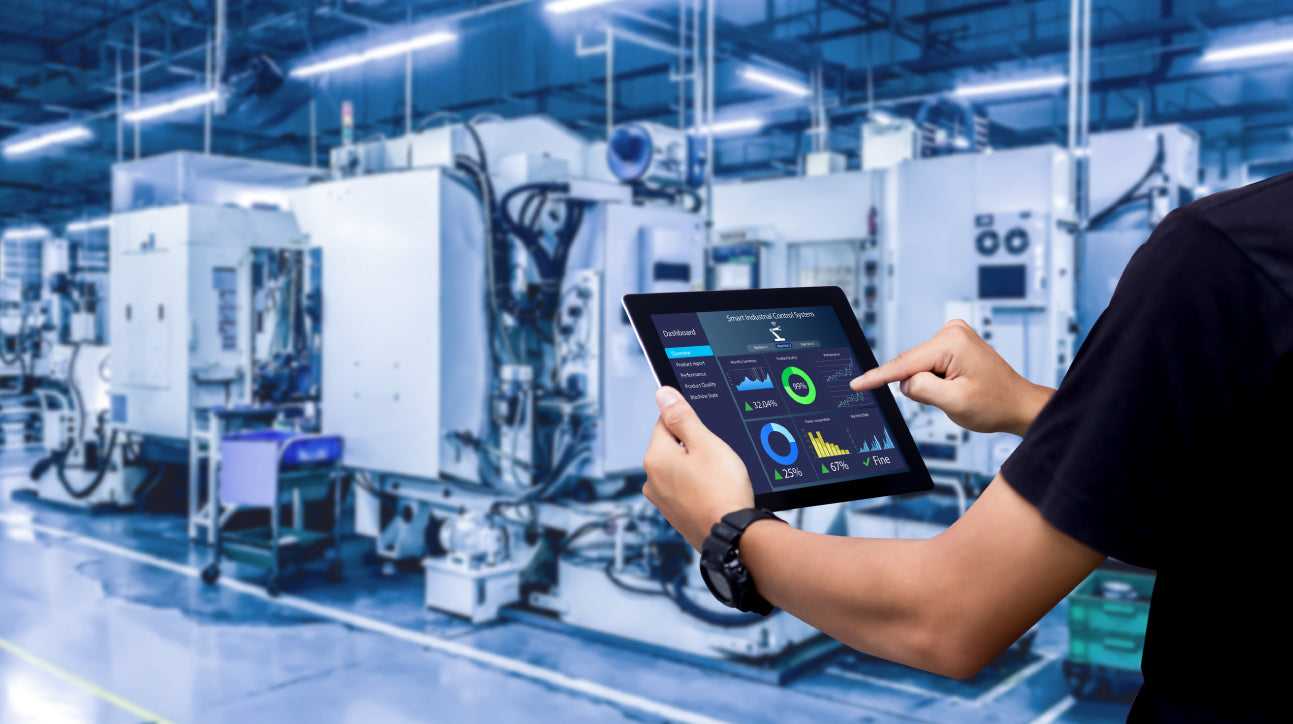PHARMA EMISSIONS
Climate change impacts health and health systems globally, and, at the same time, the pharmaceutical industry contributes significantly to the climate crisis. Responsible for 4.4% of global emissions, its CO2 footprint could triple by 2050. In 2019, it produced 48.55 tonnes of CO2e (carbon dioxide equivalent) per $1 million, 55% more than the automotive industry. IoT technology offers hope, enabling tracking and reducing carbon emissions in pharmaceuticals.
IOT AND TRACKING EMISSIONS
In the realm of tracking and reducing carbon emissions in pharmaceuticals, IoT technology plays a pivotal role. By harnessing sensors, software, and communication technologies, IoT enables data collection, analysis, and exchange among devices and systems. It empowers the industry to monitor and optimize energy consumption, curtail waste and emissions in production and transportation, and enhance sustainability across the entire supply chain. The transformative potential of IoT in tracking and reducing carbon emissions within the pharmaceutical sector is immense.
"IoT transforms carbon emission tracking in South Africa's pharmaceutical sector, enabling industry-wide sustainability through data-driven optimisation and supply chain efficiency."
HOW IOT CAN ASSIST
In the pursuit of reducing carbon emissions, IoT offers invaluable solutions. One area where IoT technology proves instrumental is in the reduction of pharmaceutical cold chain transport emissions. By leveraging IoT, real-time monitoring and optimisation of temperature-controlled transportation can be achieved, minimizing energy waste and ensuring optimal conditions. Another significant contribution of IoT lies in reducing pharmaceutical production energy consumption and costs. Through the implementation of energy monitoring systems, energy usage can be tracked and optimised, leading to more sustainable practices and substantial cost savings. Solutions from EUCA hold great promise in our collective effort to combat climate change and build a greener future in the pharmaceutical industry.

HOW THIS BENEFITS PHARMA
IoT technology can also be used to track and reduce carbon emissions throughout the pharmaceutical supply chain. For example, sensors can be placed on vehicles used to transport drugs and other healthcare products, allowing companies to monitor fuel consumption and optimise routes to reduce emissions. IoT technology can also be used to monitor and optimise energy consumption in hospitals and other healthcare facilities, reducing the carbon footprint of the healthcare industry as a whole.

In conclusion, IoT technology offers a powerful tool for tracking and reducing carbon emissions in the pharmaceutical industry. The utilization of IoT technology is paving the way for improved sustainability and cost reduction in the pharmaceutical industry, and EUCA's cutting-edge technologies are at the forefront of tracking and mitigating carbon emissions. As the world continues to grapple with the challenges of climate change, the use of IoT technology in the pharmaceutical industry will become increasingly important in helping to reduce greenhouse gas emissions and promote a more sustainable future.




